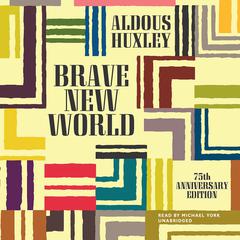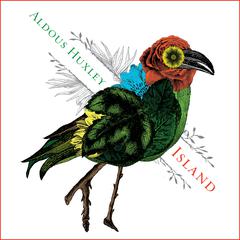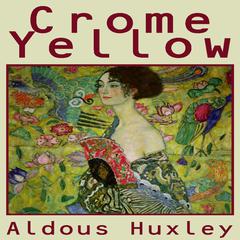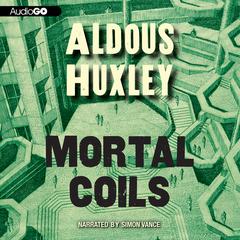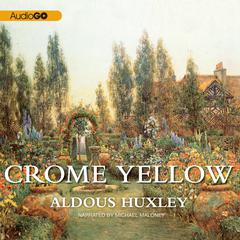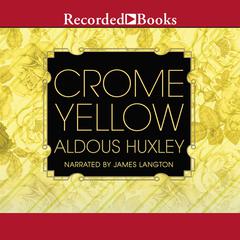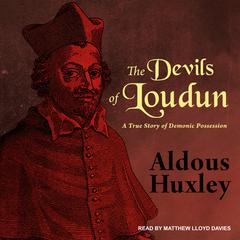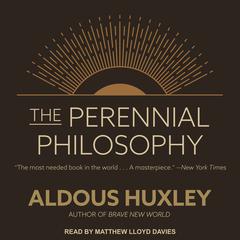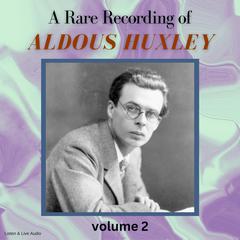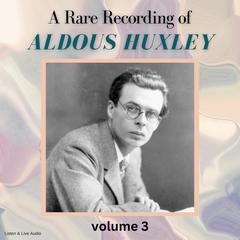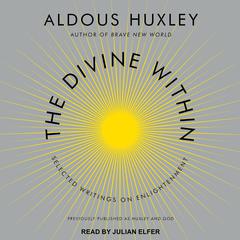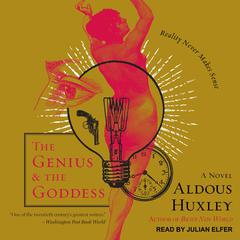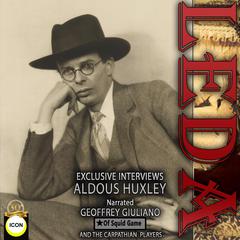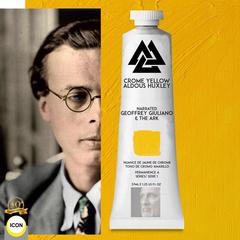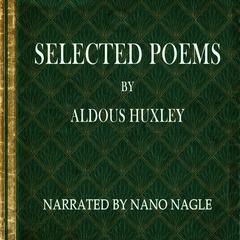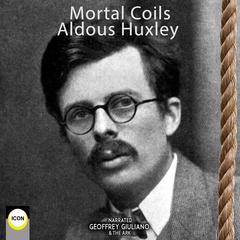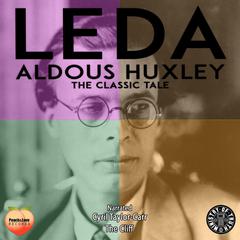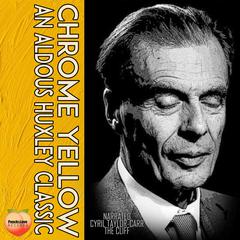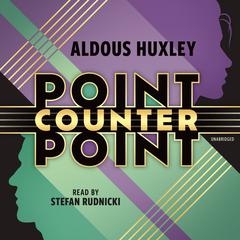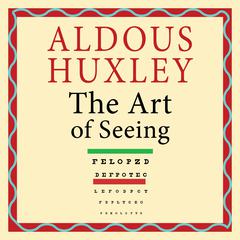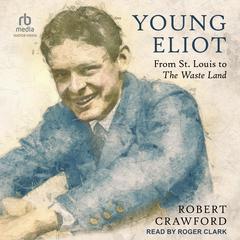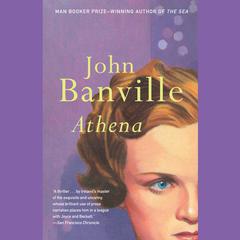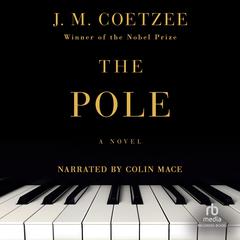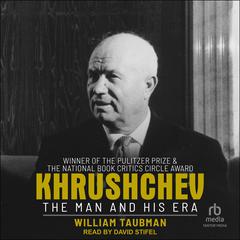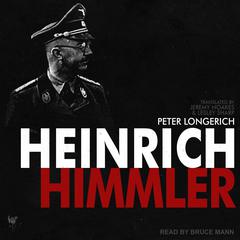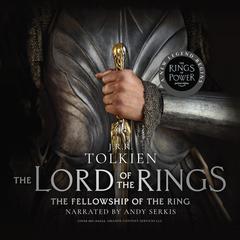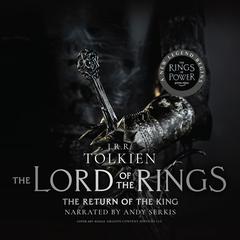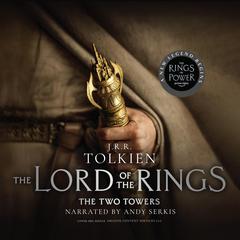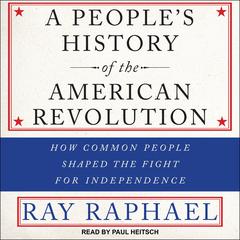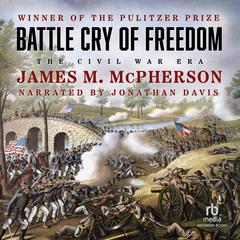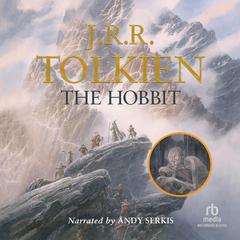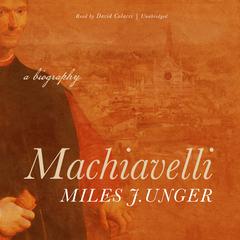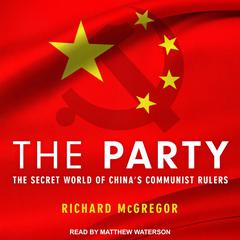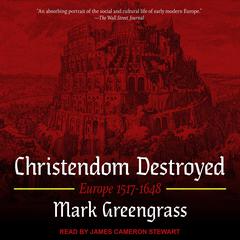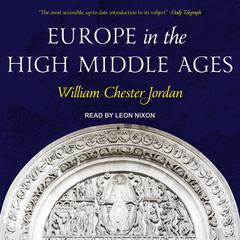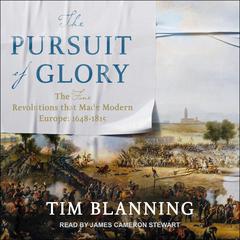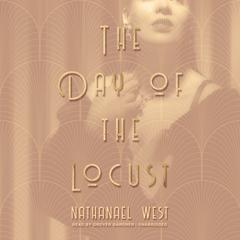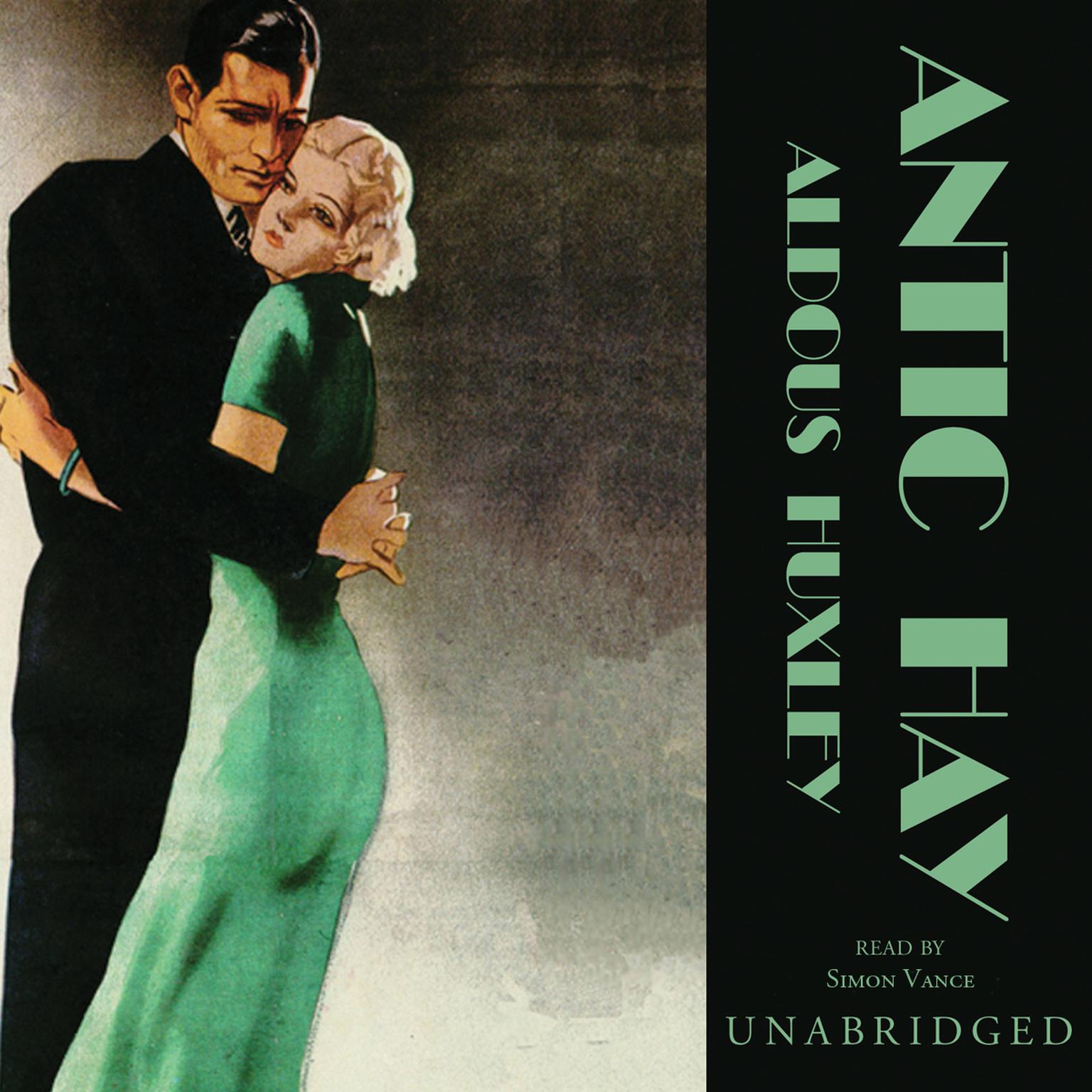 Play Audiobook Sample
Play Audiobook Sample
Antic Hay Audiobook
 Play Audiobook Sample
Play Audiobook Sample
Quick Stats About this Audiobook
Total Audiobook Chapters:
Longest Chapter Length:
Shortest Chapter Length:
Average Chapter Length:
Audiobooks by this Author:
Publisher Description
Theodore Gumbril, a mild young Oxford tutor, has become thoroughly dismayed by the formality of college life and the staid British institutions of learning. An impetuous need for celebration, even rebellion, possesses him. He and his bohemian companions embark on wild and daring bacchanalian adventures that steer them resolutely away from stifling conventions of behavior, charging them for the first time with an exuberant vitality and lust for life.
A sardonic and outspoken novel, Antic Hay unfolds its polemical theme against the backdrop of London’s postwar nihilistic bohemia. This is Huxley at his biting, brilliant best—a novel charged with excitement and loud with satiric laughter at conventional morality and stuffy people everywhere.
Download and start listening now!
"Barely just a story about Theodore Gumbril, Jr.'s pneumatic trousers (after all, the mass production and advertising scheming of Boldero the VC never came through), or quitting the academe to join London's Merry Pranksters, but about a cast of Henry Miller forebears chasing tails (their own and others) and abandoning conventionality - architectural, sexual, sexual archetypal... Huxley's characters are more fluid than his Brave New World'ers, obviously, after all they pulse serum and sputum, not diodes, and their emotions are raw and convincing - Rosie's perseverance in finding the mysterious Toto, Zoe's revenge by stabbing Coleman, Emily's sorrow from Gumbril's flippancy... Gumbril keeps foreground status throughout the novel, despite Huxley's panning from scene to scene from the eyes of the circumstantial character, with his metamorphosis from Oxon reader to character fraud, absorbing the company he keeps and masquerading as his friends to ensnare the fair sex. Rosie acknowledged this quickly, noting that both Mercaptan and Coleman were more fantastic and exquisite than Toto the pseudo-poet. Eventually Gumbril must give up the pretense, recognize the pain he's caused Emily in snubbing her for Mrs. Viveash, and close out the story with Viveash in tow, rambling from companion to companion, like voyeurs hiding in the boudoir."
— Anthony (5 out of 5 stars)
Quotes
-
“A cry for madder music and for stronger wine.”
— New York Times -
“Aldous Huxley was the most able of satirists...and it is the essential seriousness of his mind, his real concern with the world which gives him his strength.”
— Nation -
“Antic Hay has the literary delights of the intelligence questionnaire, characters who don’t talk in conversations but in charades, with satire japing sophistication as well as the more obvious targets, engaging naughtiness narrated for its own sake, rising and falling in broad comedy and in episodes deliciously strange and tender.”
— New Republic -
“There are passages in Antic Hay of a pure and rhythmic beauty: passages so fine, so just, that they move one like good music.”
— Saturday Review -
“[Vance’s] voice is fun to listen to, and he uses that playfulness to complement Huxley’s biting, satiric prose. He reads marvelously, pacing the story well and using his firm, deep voice to capture the irony and hypocrisy within the book.”
— AudioFile
Antic Hay Listener Reviews
-
" I read this book because Lois Gordon's excellent biography of Nancy Cunard cites it. Huxley apparently had a brief liason with Cunard and then made her a character in this book. I wish I could recognize the other players, all of whom were given absurd and suggestive names in Antic Hay. (Cunard is Mrs. Viveash.) It's largely satirical, and in equal measure bilious and hilarious. The writing is sharp and vivid, but the overall tone suggests the depth of disillusion that resulted from the disaster of the first world war. In that way, this is an acute portrait of the period. "
— Elizabeth, 2/13/2014 -
" Pretty over the top in language. Need a dictionary on hand most of the time. The story is a little thin, more a book of thoughts & ideas. At first it seems incredibly pretentious until it sinks in that the whole thing is a satire (should have read the reviews). Not what i expected from Huxley coming from reading his essays but well, an interesting look at the shallow side of us. "
— Ant, 2/12/2014 -
" central passage: "The spirit is slave to fever and beating blood, at the mercy of an obscure and tyrannous misfortune. But irrelevantly, it elects to dance in triple measure--a mounting skip, a patter of descending feet." "
— Adam, 1/29/2014 -
" I don't get it. Scandalous in its day maybe? "
— Frank, 1/20/2014 -
" Barely just a story about Theodore Gumbril, Jr.'s pneumatic trousers (after all, the mass production and advertising scheming of Boldero the VC never came through), or quitting the academe to join London's Merry Pranksters, but about a cast of Henry Miller forebears chasing tails (their own and others) and abandoning conventionality - architectural, sexual, sexual archetypal... Huxley's characters are more fluid than his Brave New World'ers, obviously, after all they pulse serum and sputum, not diodes, and their emotions are raw and convincing - Rosie's perseverance in finding the mysterious Toto, Zoe's revenge by stabbing Coleman, Emily's sorrow from Gumbril's flippancy... Gumbril keeps foreground status throughout the novel, despite Huxley's panning from scene to scene from the eyes of the circumstantial character, with his metamorphosis from Oxon reader to character fraud, absorbing the company he keeps and masquerading as his friends to ensnare the fair sex. Rosie acknowledged this quickly, noting that both Mercaptan and Coleman were more fantastic and exquisite than Toto the pseudo-poet. Eventually Gumbril must give up the pretense, recognize the pain he's caused Emily in snubbing her for Mrs. Viveash, and close out the story with Viveash in tow, rambling from companion to companion, like voyeurs hiding in the boudoir. "
— Anthony, 1/16/2014 -
" This is the early, ironical Huxley. I don't like it as I do his later novels. It leaves me with a sense of emptiness. "
— Pippa222, 1/14/2014 -
" more brutal charm from Huxley. Why didn't anyone tell me about him before? Did I mention that the plot hinges on pneumatic trousers? "
— Elizabeth, 1/9/2014 -
" this book had me at 'pneumatic pants' "
— Bronte, 1/5/2014 -
" Pretty over the top in language. Need a dictionary on hand most of the time. The story is a little thin, more a book of thoughts & ideas. At first it seems incredibly pretentious until it sinks in that the whole thing is a satire (should have read the reviews). Not what i expected from Huxley coming from reading his essays but well, an interesting look at the shallow side of us. "
— Ant, 12/31/2013 -
" Considering how short this book is, it was a pretty laborious read. I can't say I didn't enjoy it at times, but it was a pretty big disappointment -- it was full of interesting characters that didn't do anything. The lack of any really story got boring pretty quick. Readable but forgettable. "
— Lee, 12/24/2013 -
" I haven't read anything by Huxley for many years. I think it was back in the 60's when I last read this. "
— Darrell, 12/7/2013 -
" Witty and satirical, an enjoyable weekend reader. "
— Matt, 11/30/2013 -
" This book has some good speeches, but all in all was a little too scattered to be truly engaging. "
— Jess, 11/11/2013 -
" Highly amusing portrait of post-WWI London society. Not quite as philosophically-bent as a lot of Huxley's other work, but still very engaging. "
— Gina, 10/16/2013 -
" I don't get it. Scandalous in its day maybe? "
— Frank, 10/10/2013 -
" Aldous Huxley is a man of many talents, unfortunately social satire is not amongst them. Read Brave New World and Heaven & Hell instead, they are brilliant. This is a failed experiment. "
— Benito, 10/1/2013 -
" Witty and satirical, an enjoyable weekend reader. "
— Matt, 9/25/2013 -
" This is the early, ironical Huxley. I don't like it as I do his later novels. It leaves me with a sense of emptiness. "
— Pippa222, 7/5/2013 -
" Not a page-turner, more episodic in nature. But it is really very funny in places and the writing is excellent. Possibly a bit dated, very much of its time (just post First World War). "
— Eliane, 6/12/2013 -
" central passage: "The spirit is slave to fever and beating blood, at the mercy of an obscure and tyrannous misfortune. But irrelevantly, it elects to dance in triple measure--a mounting skip, a patter of descending feet." "
— Adam, 5/29/2013 -
" This book has some good speeches, but all in all was a little too scattered to be truly engaging. "
— Jess, 5/26/2013 -
" who knew aldous huxley had such a sense of humour? "
— Leandra, 9/10/2012 -
" This is the book that made me understand the Aldous Huxley is a far greater genius than Brave New World promised. I have to read all of Huxley's books before I die. If I don't get around to it, it'll be a shame, because I'll be too dead to read. "
— Argott, 7/23/2012 -
" No plot, yet a plethora of interesting ideas and wit. "
— Owen, 6/23/2012 -
" No plot, yet a plethora of interesting ideas and wit. "
— Owen, 6/22/2012 -
" Aldous Huxley is a man of many talents, unfortunately social satire is not amongst them. Read Brave New World and Heaven & Hell instead, they are brilliant. This is a failed experiment. "
— Benito, 6/10/2012 -
" Antic Hay is a mishmash of various topics on the mind of Aldous Huxley after the end of the first World War. Told from the perspective of a number of different characters, it may suffer from a lack of focus on a plot, but never deviates from Huxley incisive insights into the culture of the time. "
— Maureen, 5/16/2012 -
" I haven't read anything by Huxley for many years. I think it was back in the 60's when I last read this. "
— Darrell, 12/13/2011 -
" Highly amusing portrait of post-WWI London society. Not quite as philosophically-bent as a lot of Huxley's other work, but still very engaging. "
— Gina, 10/19/2011 -
" more brutal charm from Huxley. Why didn't anyone tell me about him before? Did I mention that the plot hinges on pneumatic trousers? "
— Elizabeth, 10/4/2011 -
" Antic Hay is a mishmash of various topics on the mind of Aldous Huxley after the end of the first World War. Told from the perspective of a number of different characters, it may suffer from a lack of focus on a plot, but never deviates from Huxley incisive insights into the culture of the time. "
— Maureen, 6/22/2011 -
" who knew aldous huxley had such a sense of humour? "
— Leandra, 5/27/2011 -
" This is the book that made me understand the Aldous Huxley is a far greater genius than Brave New World promised. I have to read all of Huxley's books before I die. If I don't get around to it, it'll be a shame, because I'll be too dead to read. "
— Argott, 5/3/2011 -
" Aldous Huxley is a man of many talents, unfortunately social satire is not amongst them. Read Brave New World and Heaven & Hell instead, they are brilliant. This is a failed experiment. "
— Benito, 5/2/2011 -
" Aldous Huxley is a man of many talents, unfortunately social satire is not amongst them. Read Brave New World and Heaven & Hell instead, they are brilliant. This is a failed experiment. "
— Benito, 5/2/2011 -
" I haven't read anything by Huxley for many years. I think it was back in the 60's when I last read this. "
— Darrell, 7/8/2010 -
" I haven't read anything by Huxley for many years. I think it was back in the 60's when I last read this. "
— Darrell, 7/8/2010 -
" Considering how short this book is, it was a pretty laborious read. I can't say I didn't enjoy it at times, but it was a pretty big disappointment -- it was full of interesting characters that didn't do anything. The lack of any really story got boring pretty quick. Readable but forgettable. "
— Lee, 5/10/2010 -
" Considering how short this book is, it was a pretty laborious read. I can't say I didn't enjoy it at times, but it was a pretty big disappointment -- it was full of interesting characters that didn't do anything. The lack of any really story got boring pretty quick. Readable but forgettable. "
— Lee, 5/10/2010 -
" who knew aldous huxley had such a sense of humour? "
— Leandra, 2/9/2010 -
" who knew aldous huxley had such a sense of humour? "
— Leandra, 2/9/2010 -
" this book had me at 'pneumatic pants' "
— Bronte, 6/4/2009 -
" this book had me at 'pneumatic pants' "
— Bronte, 6/4/2009 -
" Not a page-turner, more episodic in nature. But it is really very funny in places and the writing is excellent. Possibly a bit dated, very much of its time (just post First World War). "
— Eliane, 5/18/2009 -
" Not a page-turner, more episodic in nature. But it is really very funny in places and the writing is excellent. Possibly a bit dated, very much of its time (just post First World War). "
— Eliane, 5/18/2009 -
" This is the book that made me understand the Aldous Huxley is a far greater genius than Brave New World promised. I have to read all of Huxley's books before I die. If I don't get around to it, it'll be a shame, because I'll be too dead to read. "
— Argott, 1/30/2009 -
" This is the book that made me understand the Aldous Huxley is a far greater genius than Brave New World promised. I have to read all of Huxley's books before I die. If I don't get around to it, it'll be a shame, because I'll be too dead to read. "
— Argott, 1/30/2009
About Aldous Huxley
Aldous Leonard Huxley (1894–1963) was an English poet, novelist, dramatist, essayist, and humanist philosopher. He attended Eton and Oxford and briefly taught at Eton before devoting himself solely to writing. His fifth novel, Brave New World, is one of the most read books in literary history.
About Simon Vance
Simon Vance (a.k.a. Robert Whitfield) is an award-winning actor and narrator. He has earned more than fifty Earphones Awards and won the prestigious Audie Award for best narration thirteen times. He was named Booklist’s very first Voice of Choice in 2008 and has been named an AudioFile Golden Voice as well as an AudioFile Best Voice of 2009. He has narrated more than eight hundred audiobooks over almost thirty years, beginning when he was a radio newsreader for the BBC in London. He is also an actor who has appeared on both stage and television.




